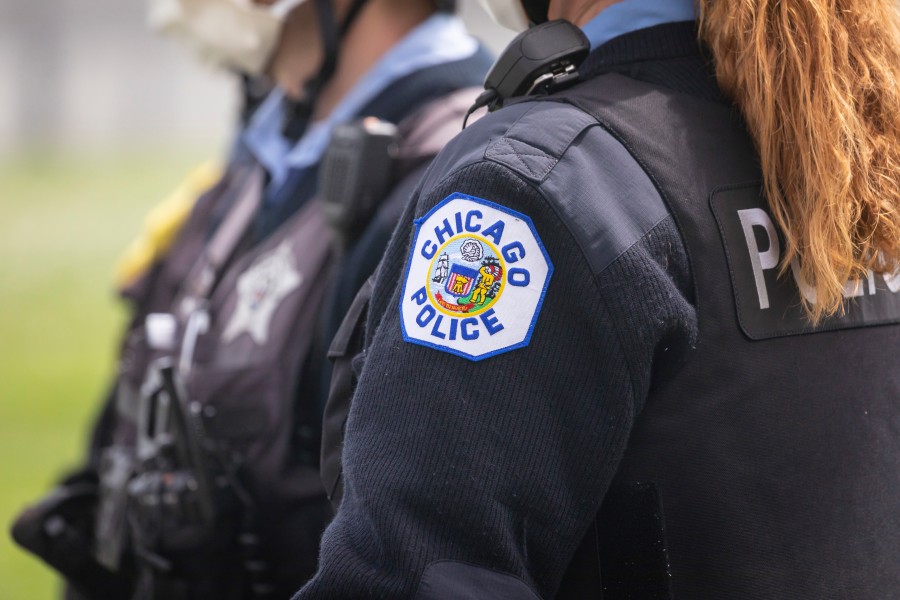Rehiring retirees as a quick fix for Chicago Police could undermine reform, experts say
Throughout Chicago’s mayoral race, candidate Paul Vallas has said CPD retirees are low-hanging fruit for replenishing sworn police ranks.
By Chip Mitchell

Rehiring retirees as a quick fix for Chicago Police could undermine reform, experts say
Throughout Chicago’s mayoral race, candidate Paul Vallas has said CPD retirees are low-hanging fruit for replenishing sworn police ranks.
By Chip MitchellThroughout Chicago’s mayoral race, candidate Paul Vallas has depicted CPD retirees as low-hanging fruit for replenishing sworn police ranks that have shrunk by 1,600 officers since 2019. But it’s not clear that many retirees would actually come back. And if they did, experts warn, they could undermine police reforms that are vital for the department to build community trust.
Big cities across the country have struggled to hire and retain cops amid the pandemic, “defund the police” sentiment and a violent crime surge. Several cities have tried to hire back police retirees but few have reported success. Vallas says electing a law-and-order candidate like him would be a powerful lure.
“I know for a fact that there are hundreds of officers who will return if there’s new leadership,” Vallas said during a WGN-TV debate last week. “The bottom line is, fill the vacancies, and invite those who have retired and those who have transferred to return and, under new leadership, they will. So you’ll be getting an infusion of experienced officers.”
Vallas has said the rehired cops would analyze records for detectives, run witness protection efforts, and even respond to domestic violence complaints. He has not said what he would do about a municipal code that requires cops to retire from sworn ranks at age 63 or whether he’d offer terms competitive with what many CPD retirees have: a police pension and a non-city job.
“Paul believes that people are going to come off of retirement and come back to work after serving 25-plus years? That’s ridiculous,” Vallas’ runoff opponent, Brandon Johnson, said in the debate.
To gauge interest among CPD retirees, WBEZ reached eight, ranging from age 51 to 70. Two said they might consider going back to the department. The others were content with new jobs or had moved away.
Beyond whether Vallas could entice retirees to return are questions about whether they would go along with the city’s consent decree, a federal court agreement to reform the department. The pact repudiates a range of policing practices of the past.
Before the mayoral election’s first round, proposals by Vallas and several other candidates to bring back CPD retirees caught the attention of Kim Smith, program director of the University of Chicago’s crime and education labs.
“We don’t want to go back to the ‘good old days’ of coercing confessions and capturing a really wide swath of individuals — clearing corners, kicking down doors for the sake of terrorizing communities,” Smith told WBEZ.
Rhonda Porche Bullock — a former trustee of Fraternal Order of Police Chicago Lodge 7, the union for most of the city’s cops and police retirees — said retirees would be slow to embrace the consent decree.
“It’s hard to change a person’s perceptions and mentalities of the way things should be done,” said Bullock, who retired as a patrol officer in 2013. “Take vehicle chases: When I first came on, the sergeants didn’t get on the radio and tell you to cut the chase. And you have people that absolutely would not be able to understand the consent decree and … the changes that the world has gone through.”
WBEZ asked to speak with Vallas about how he would draw back retirees and how he would avoid reinforcing outmoded policing. His campaign did not grant an interview or answer the questions.
Separate from the mayoral race, a Feb. 27 agreement between CPD and the union spells out terms for retirees to return. None would retain their seniority and all would serve at the police officer rank, even if they had been promoted before retiring. The agreement also disqualifies anyone older than 50 and anyone gone from CPD for more than three years.
The city on Sunday also held a job fair at the union, aiming to put “recently retired” CPD officers into civilian CPD positions and enable transferring sworn cops, now handling those jobs, back to street duty. Scores of people turned out, a sign that at least some retirees could see themselves working for the Police Department again.
A police hiring spree toward the end of Mayor Rahm Emanuel’s administration lifted the number of sworn officers to 13,353 in January 2019, according to figures posted by the city’s inspector general’s office. The number dropped to a low of 11,611 last August before rebounding a bit. On March 1, there were 11,711.
But, of 298 big cities reporting in 2020 to the FBI, Chicago had more cops per capita than any except Washington, D.C., according to a WBEZ analysis of the data. The cities included St. Louis, Detroit, Memphis, Cleveland and others with higher murder rates than Chicago.
Former longtime Los Angeles police chief Charlie Beck, who headed CPD on an interim basis in 2019 and 2020, said Chicago could get much more out of the cops it already employs.
“Los Angeles has a million more people and probably twice as much square mileage as Chicago and operates with fewer cops and better results,” he said.
Beck said Chicago could use a bigger police department, but what it really needs is a more effective department.
Chip Mitchell reports on policing, public safety and public health. Follow him at @ChipMitchell1. Contact him at cmitchell@wbez.org.